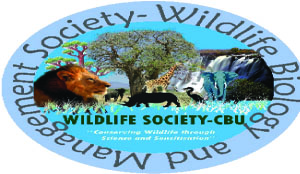Wildlife conservation is the practice of protecting endangered plant and animal species and their habitats.
Among the goals of wildlife conservation are to ensure that nature will be around for future generations to enjoy and to recognise the importance of wildlife and wilderness lands to humans.
Many nations have government agencies dedicated to wildlife conservation, which help to implement policies designed to protect wildlife. Numerous independent nonprofit organisation are also proactive in various wildlife conservation causes.
Wildlife conservation has become increasingly important worldwide due to negative effect of human activities on wildlife, activities such overexploitation of wildlife resources and habitat destruction.
Many countries have come up with different strategies in conserving wildlife and improving the numbers.
Most the wildlife in the world is concentrated in Africa specifically southern and east Africa and hence huge pressure on these resources for trophy.
In the eighties and nineties wildlife numbers dwindled leading to extinction of some wildlife species such as Rhinos, Elephants, cats and more in some parts of Africa.
This was due to the rapid population increase of human being which brought pressure on land for settlement and farming.
Poaching was so high in eighties and nineties which affected wildlife numbers, especially rhino’s elephants and cats for trophy however it is practically impossible to eradicate poaching but many countries through institutions, nonprofit organizations and government agency have managed to at least reduce poaching to some extent through various strategies.
Most countries endowed with wildlife resources have promoted community based natural resource management (CBNRM) as one of the best way of conserving wildlife and sustainability use of the products.
Local people who are custodians of the land are charged with responsibility to manage wildlife and sustainability use of the products.
For instance the Namibian government through the ministry of tourism and environmental has given responsibility to the community to manage wildlife resource in areas surrounding the national parks called conservancies. In these areas the community have the duty to conserve wildlife and any benefits generated are used for community development projects.
The communities in Zambia through Zambia wildlife authority (ZAWA) has been also charged with responsibility to conserve wildlife in game management areas (GMAs), the community form what is called community resource board (CRB) which looks at management issues in collaboration with ZAWA.
The CRB employs village scouts, which are responsible for ground patrols protecting wildlife from being poached.
The village scouts are given incentives form the money that CRB generates and the other package goes to community development such construction of community school, clinics and bole holes.
This has proved to be working in countries like Namibia, the local people knows the important of wildlife and the kind of development it brings to the community.
Hence it is not easy for poachers to connive with local people in poaching practice.
In Zambia it is a different case, village scout are going on for months without their salaries.
Zambia suspended hunting two years ago which was the main source of income for CRB and ZAWA, the CRB is not in a position to pay the village scout their dues because they cannot generate enough income without hunting.
This has brought a lot of concern to conservationist as the conservation status of our wildlife is at stake, the scout are suffering protecting our wildlife which is government resources at the end of month they get low salaries or nothing at all.
The scout being the actual people doing the work on ground need to be motivated with incentives, without incentives it is very easy for poacher to manipulate scout to poach on their behalf and gain some income.
As a conservationist I strongly feel that government should take this role as the mother board and put the scouts on government payroll just like police officers.
The wildlife police officer under ZAWA are also frustrated of getting low salaries, they have been working for a number of years without salary increment because ZAWA has no capacity to increase their salaries. Just recently wildlife police officer at Lusaka Park demonstrated over low salaries.
I strongly feel the Zambian government should recapitalize ZAWA in order to improve on condition of service for our poor wildlife police officers and village scouts.
This will increase ZAWA’s capacity on conservation and management of wildlife. Ever since they suspended hunting, Zambia have taken the non-consumptive tourism way of conserving wildlife which is not bad as it gives animals time to breed and increase in numbers.
If the government feels this is the best way to go, then I strongly challenge the government to recapitalise ZAWA to facilitate on the projects and operation until such a time when the hunting ban will be lifted.
The government should also invest in infrastructure development in our national parks country wide to improve on tourist coming to Zambia.
Tourism sector is a potential sector to economic development in the country.
Non consumptive tourism can be effective only if our national parks are fully developed unlike the current status of our national parks.
Most of our Zambian national parks are underdeveloped hence few or no tourist visiting them.
Share with us your experiences, comments and recommendations. Send emails to wildlifemgtsociety@gmail.com OR brysonsompa@yahoo.com







